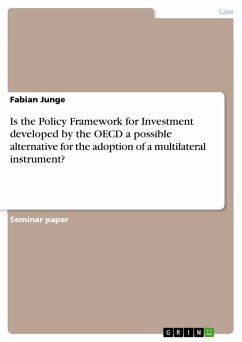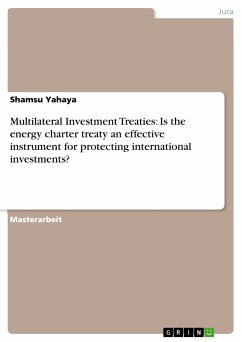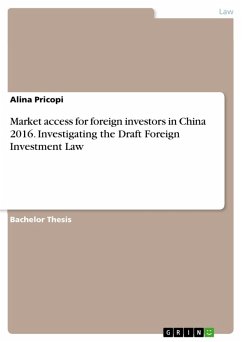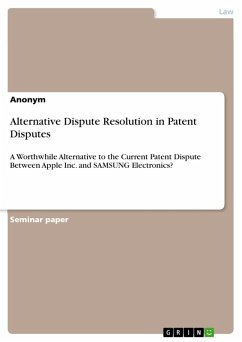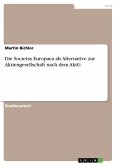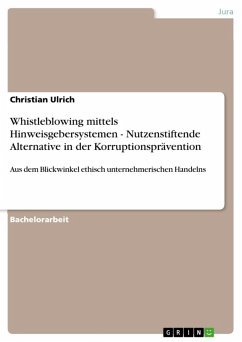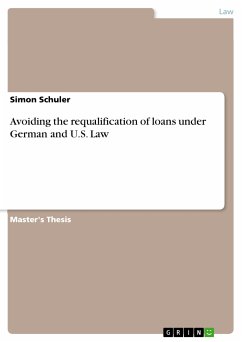Seminar paper from the year 2012 in the subject Law - Civil / Private, Trade, Anti Trust Law, Business Law, grade: 1,3, University of Groningen, language: English, abstract: When examining the development of foreign direct investment and the effects of multinational corporations over the last decades, one has to come to the conclusion that the importance increased and grew significantly. Until the 1970s most of the countries were opposed to foreign direct investment due to a fear of losing economic and political independence by allowing foreign control over their economic resources and their key industries. Since the 1990s, there has been a positive turn towards foreign direct investment and its liberalization, because it is predominantly seen as requirement for economic growth, productivity increase, creation of export potential and technology transfer. As a result, the amount of foreign direct investment expanded faster than the world economy and the volume of international trade resulting in a need to control the investment flows and to regulate the area.1 By virtue of the rather sensitive topic of foreign direct investments, it was impossible in the past for the international community to agree upon an uniform and harmonized international regime setting out the standards for international investments. Hence, a multitude of national and international policy rules and principles govern the relevant aspects in this field resulting in a variety of international investment agreements. As an example, more than 2670 bilateral investment treaties and more than 270 other international investment agreements have been adopted globally until the end of 2008.2 Nevertheless, the plurality of the different international investment agreements with their different scopes, different types, different signatories have led to a patchwork of treaties resulting in a highly fragmented and incoherent international investment regime. As a result of this and the problems accompanying it, such as a more and more complex structure and an increase in investment disputes due to the interpretation and implementation of these treaties, the desire to adopt a general coherent framework for investment has been stirred, especially by international organizations like the WTO or the OECD. The OECD (Organization for Economic Co-operation and Development) is an international economic organization consisting out of 34 countries and was founded in 1961 to stimulate economic progress and world trade.
Dieser Download kann aus rechtlichen Gründen nur mit Rechnungsadresse in A, B, BG, CY, CZ, D, DK, EW, E, FIN, F, GR, HR, H, IRL, I, LT, L, LR, M, NL, PL, P, R, S, SLO, SK ausgeliefert werden.

